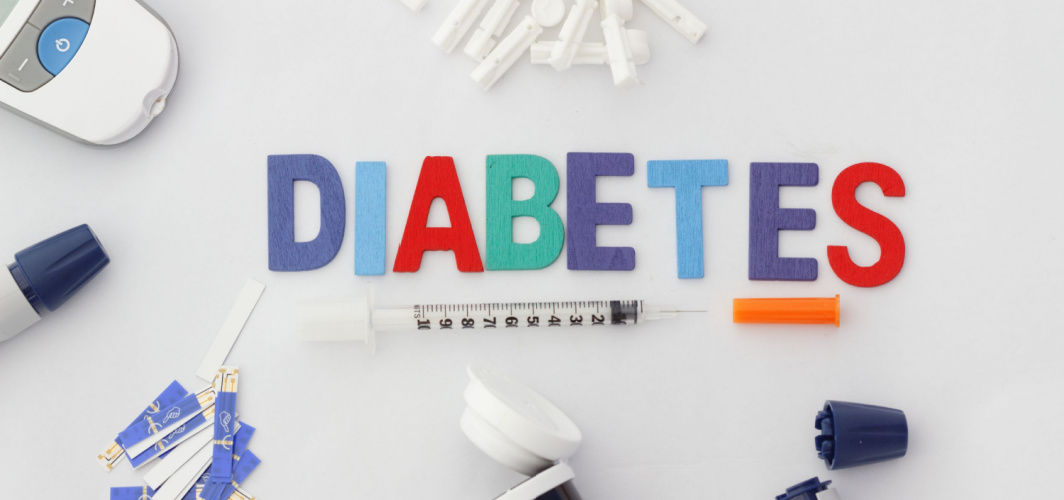Diabetes Management
The Connection Between Diabetes and Polycystic Ovary Syndrome
1 min read
By Apollo 24|7, Published on - 16 April 2024
Share this article
0
0 like
.jpg?tr=q-80)
One might wonder, what could possibly connect diabetes, a metabolic disease, with Polycystic Ovary Syndrome (PCOS), a condition affecting women's reproductive health. The truth is, there is a significant link between these two seemingly unrelated conditions. Let's talk about this connection and how it impacts health and well-being.
Learning the Connection
The link between PCOS and diabetes, particularly Type 2 diabetes, is well-established. PCOS affects about 5-15% of pre-menopausal women around the globe and is often associated with insulin resistance - a key player in the development of Type 2 diabetes. But how does this interplay work?
The Role of Insulin Resistance
Insulin resistance in PCOS leads to a condition known as hyperinsulinemia, which means that the body compensates by producing more insulin. This extra insulin triggers ovarian and adrenal steroidogenesis – a process that can lead to metabolic abnormalities and reproductive issues.
Risk in Lean Women with PCOS
Interestingly, even lean women with PCOS have an elevated risk of developing Type 2 diabetes. This highlights the complex relationship between these two conditions. It's not about your size or weight; it's about the intricate mechanisms working within your body.
Type 1 Diabetes and PCOS: A Hidden Link?
Besides Type 2 diabetes, evidence suggests a connection between PCOS and Type 1 diabetes too. Here, extremely high concentrations of insulin are often the cause. Understanding these links is crucial for doctors to effectively diagnose and manage both PCOS and diabetes in affected individuals.
Battling Diabetes and PCOS Together
Understanding the link between diabetes and PCOS is just the first step. The next is to implement effective strategies to manage both conditions effectively. Regular monitoring of blood sugar levels, following a balanced diet, incorporating regular physical activity, and taking prescribed medications can help in managing these health conditions. Always remember the first step towards better health starts with understanding your body.
Diabetes Management
Consult Top Diabetologists
View AllLeave Comment
Recommended for you
.jpg?tr=q-80)
Diabetes Management
What Are the Best Breakfast Cereals for a Diabetic to Eat?
If you have diabetes, selecting the right breakfast cereal can significantly influence your blood sugar control. Opt for high-fibre cereals, control your portion sizes, and understand food labels to make wise choices. Stay proactive in your health journey by enrolling in the Apollo Super 6 programme for personalised guidance. References

Diabetes Management
Which Age Group is the Most Susceptible to Diabetes?
Diabetes susceptibility varies by age. Type 1: childhood onset. Type 2: middle to old age, risk ↑ after 45. Gestational diabetes risk ↑ with age. Factors: activity, metabolism, genetics. Early detection is vital. Regular check-ups, a balanced diet are crucial.
.jpg?tr=q-80)
Diabetes Management
Log. Track. Learn- Here’s How You Can Simplify Your Diabetes Management
Simplify your diabetes management with Apollo 24|7's diabetes self-management tool. Track your glucose levels, monitor physical activity, sync glucometers, understand the impact of your meals on your sugar levels and stay informed through Health Bites. You can try this user-friendly tool that empowers you to make informed decisions, achieve better blood sugar control, and lead a healthier life while simplifying your diabetes management journey.
Subscribe
Sign up for our free Health Library Daily Newsletter
Get doctor-approved health tips, news, and more.
Visual Stories

8 Fruits That are Incredibly Healthy for Diabetes
Tap to continue exploring
Recommended for you
.jpg?tr=q-80)
Diabetes Management
What Are the Best Breakfast Cereals for a Diabetic to Eat?
If you have diabetes, selecting the right breakfast cereal can significantly influence your blood sugar control. Opt for high-fibre cereals, control your portion sizes, and understand food labels to make wise choices. Stay proactive in your health journey by enrolling in the Apollo Super 6 programme for personalised guidance. References

Diabetes Management
Which Age Group is the Most Susceptible to Diabetes?
Diabetes susceptibility varies by age. Type 1: childhood onset. Type 2: middle to old age, risk ↑ after 45. Gestational diabetes risk ↑ with age. Factors: activity, metabolism, genetics. Early detection is vital. Regular check-ups, a balanced diet are crucial.
.jpg?tr=q-80)
Diabetes Management
Log. Track. Learn- Here’s How You Can Simplify Your Diabetes Management
Simplify your diabetes management with Apollo 24|7's diabetes self-management tool. Track your glucose levels, monitor physical activity, sync glucometers, understand the impact of your meals on your sugar levels and stay informed through Health Bites. You can try this user-friendly tool that empowers you to make informed decisions, achieve better blood sugar control, and lead a healthier life while simplifying your diabetes management journey.



